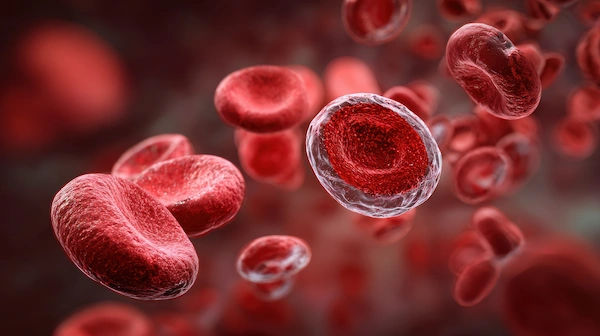Guide to Sexual Health Issues
Explore common sexual health issues, their causes, symptoms, and treatment options. Learn how to maintain sexual well-being, improve intimacy, and seek timely medical support.

Written by Dr. Dhankecha Mayank Dineshbhai
Reviewed by Dr. Vasanthasree Nair MBBS
Last updated on 13th Jan, 2026

Introduction
Sexual health is a vital part of your overall well-being, yet it's often shrouded in silence and misconception. It’s not just about avoiding disease or unplanned pregnancy; it’s about cultivating a positive and respectful approach to sexuality and sexual relationships, enabling pleasurable and safe sexual experiences free of coercion, discrimination, and violence. This comprehensive guide aims to demystify sexual health issues, empower you with knowledge, and break down the barriers to having open, honest conversations. Whether you're looking to understand common conditions, improve intimacy, or simply ensure you're taking the right preventive steps, we'll cover the physical, emotional, and mental aspects of a healthy sexual life. Let's move beyond the stigma and embrace sexual health as the essential component of self-care that it truly is.
What is Sexual Health? More Than Just the Absence of Disease
The World Health Organization defines sexual health as "a state of physical, emotional, mental, and social well-being in relation to sexuality." This holistic view means it’s interconnected with your general health, your relationships, and your sense of self.
The Physical Dimension of Sexual Health
This is the most commonly recognized aspect. It involves the proper functioning of your reproductive system, freedom from sexually transmitted infections (STIs), and the ability to manage fertility effectively. It also includes addressing sexual dysfunction concerns like erectile dysfunction or pain during intercourse, which can be signs of underlying health issues.
The Mental and Emotional Dimensions
Your mind and emotions play a crucial role. This dimension encompasses body image, self-esteem, and the ability to communicate desires and boundaries. It includes enjoying sexual experiences without shame, guilt, or fear. Mental health conditions like anxiety and depression can significantly impact this area, creating a complex interplay between mind and body.
The Social and Relational Dimensions
Sexual health exists within a social context. It involves understanding and respecting the rights of others, practicing consent, and fostering healthy, equitable relationships. It’s about navigating cultural and societal norms while staying true to your own values and desires, creating a foundation of mutual respect and trust with your partner(s).
Consult Top Specialists for Personalised Tips
Common Sexual Health Issues and Conditions
A wide range of conditions can affect sexual health. Understanding them is the first step toward prevention and treatment.
Sexually Transmitted Infections (STIs)
STIs are infections passed from one person to another through sexual contact. They are incredibly common; the WHO estimates over 1 million new infections are acquired every day globally.
Bacterial STIs: Chlamydia, Gonorrhea, Syphilis
These are caused by bacteria and are often curable with antibiotics. However, they are frequently asymptomatic, especially in women. Untreated, they can lead to serious complications like pelvic inflammatory disease (PID), infertility, and chronic pain. Regular STI testing and screening is crucial for early detection, even if you feel fine.
Viral STIs: HPV, Herpes, HIV
These are caused by viruses and are manageable but not always curable. Human Papillomavirus (HPV) is the most common STI and can lead to genital warts and certain cancers (thankfully preventable with a vaccine). Herpes (HSV) causes recurring sores and is manageable with antiviral therapy. HIV attacks the immune system, but with modern treatment (ART), people with HIV can live long, healthy lives and have undetectable viral loads, meaning they cannot transmit the virus sexually.
Sexual Dysfunction Concerns
These problems can occur during any phase of the sexual response cycle, preventing satisfaction.
Erectile Dysfunction (ED)
The inability to get or maintain an erection firm enough for sex. It's often linked to physical conditions like heart disease, diabetes, and obesity, or psychological factors like stress and anxiety. Consulting a doctor about ED is important as it can be an early warning sign of other health issues.
Premature Ejaculation (PE)
This involves ejaculating sooner than desired during sexual activity. It's a common issue that can cause distress but is often treatable through behavioral techniques, therapy, or medication.
Low Libido (in all genders)
A lack of sexual desire can be caused by hormonal changes, medications, chronic illness, stress, fatigue, or relationship problems. Addressing low libido naturally often starts with identifying and managing the root cause, whether physical or psychological.
Painful Intercourse (Dyspareunia)
This pain can affect anyone and has numerous causes, including infections, endometriosis, vaginal dryness, or psychological factors. It should never be ignored, as effective treatments are available.
Prevention: Your First Line of Defense
Proactive measures are the most effective way to maintain sexual health.
Barrier Methods: Condoms and Dams
Consistent and correct use of male and female condoms is one of the most effective methods to reduce the risk of STI transmission. Dental dams can be used for oral sex to provide a protective barrier.
The Importance of Regular STI Testing
Getting tested is a responsible part of being sexually active. The frequency depends on your number of partners and practices. An annual test is a good baseline for sexually active adults, but more frequent testing is recommended if you have new or multiple partners. If you experience any unusual symptoms, don't wait and get tested promptly.
Vaccinations: HPV and Hepatitis B
Vaccines are powerful preventive tools. The HPV vaccine protects against the strains of HPV that cause most cervical cancers and genital warts. The Hepatitis B vaccine prevents a virus that can cause chronic liver disease and is transmitted through sexual contact and blood.
How Mental Health Impacts Sexual Wellness
The connection between the mind and sexual function is profound. Stress from work can kill a mood, anxiety about performance can prevent an erection, and past trauma can create barriers to intimacy. Depression is a common cause of low sexual desire, as it affects neurotransmitter levels in the brain. Addressing mental health through therapy, mindfulness, and stress management techniques is often a critical part of resolving sexual health issues. If your mental health is affecting your daily life and relationships, consulting a therapist can be incredibly beneficial.
When to See a Doctor: Don't Ignore the Signs
You should consult a healthcare professional if you experience:
Any unusual discharge, sores, bumps, or rashes on the genitals.
Pain or burning during urination or sex.
Persistent pelvic pain or unusual bleeding.
Sexual dysfunction concerns that cause you distress or strain your relationship.
You've had unprotected sex with a new partner or a partner whose STI status is unknown.
If symptoms persist beyond a few days or cause you concern, consult a doctor online with Apollo24|7 for a confidential and professional evaluation. They can provide guidance, order necessary tests (Apollo24|7 offers convenient home collection for a wide range of tests), and recommends appropriate treatment options. There is no shame in seeking help; it's a sign of self-respect.
Conclusion
Navigating sexual health is a lifelong journey of education, self-awareness, and communication. By understanding the common sexual health issues, from STIs to dysfunction, and embracing a proactive approach to prevention through testing and safe practices, you take control of your well-being. Remember that your mental state is deeply intertwined with your physical experiences, and addressing one often helps the other. Most importantly, never underestimate the power of open, honest conversation—with your partners and with healthcare professionals. If you have concerns, big or small, seeking expert advice is the strongest and smartest step you can take. Your sexual health is a vital part of who you are; prioritize it, protect it, and never be afraid to advocate for it.
Consult Top Physician
Consult Top Specialists for Personalised Tips

Dr. Chethan T L
General Physician/ Internal Medicine Specialist
5 Years • MBBS, MD, DNB (General Medicine)
Bengaluru
Apollo Medical Center, Marathahalli, Bengaluru

Dr. Rajib Ghose
General Physician/ Internal Medicine Specialist
25 Years • MBBS
East Midnapore
VIVEKANANDA SEBA SADAN, East Midnapore

Dr. D Bhanu Prakash
General Practitioner
10 Years • MBBS, AFIH, Advanced certificate in critical care medicine, Fellowship in critical care medicine
Hyderabad
Apollo 24|7 Clinic, Hyderabad

Dr. Rohinipriyanka Reddy
General Practitioner
9 Years • MBBS
Hyderabad
Apollo 24|7 Clinic, Hyderabad

Dr. M L Ezhilarasan
General Practitioner
6 Years • MBBS
Visakhapatnam
Apollo 24|7 Clinic - Andhra Pradesh, Visakhapatnam
Consult Top Physician

Dr. Chethan T L
General Physician/ Internal Medicine Specialist
5 Years • MBBS, MD, DNB (General Medicine)
Bengaluru
Apollo Medical Center, Marathahalli, Bengaluru

Dr. Rajib Ghose
General Physician/ Internal Medicine Specialist
25 Years • MBBS
East Midnapore
VIVEKANANDA SEBA SADAN, East Midnapore

Dr. D Bhanu Prakash
General Practitioner
10 Years • MBBS, AFIH, Advanced certificate in critical care medicine, Fellowship in critical care medicine
Hyderabad
Apollo 24|7 Clinic, Hyderabad

Dr. Rohinipriyanka Reddy
General Practitioner
9 Years • MBBS
Hyderabad
Apollo 24|7 Clinic, Hyderabad

Dr. M L Ezhilarasan
General Practitioner
6 Years • MBBS
Visakhapatnam
Apollo 24|7 Clinic - Andhra Pradesh, Visakhapatnam
More articles from General Medical Consultation
Frequently Asked Questions
How often should I get tested for STIs?
It depends on your sexual activity. Yearly testing is a good rule of thumb for sexually active adults. If you have new or multiple partners, get tested before starting a new sexual relationship and then every 3-6 months.
Can I get an STI from oral sex?
Absolutely. STIs like herpes, gonorrhea, chlamydia, and HPV can be transmitted through oral sex. Using condoms or dental dams can significantly reduce this risk.
What are some natural ways to address low libido?
Focusing on stress reduction (e.g., yoga, meditation), ensuring adequate sleep, regular exercise, and a balanced diet can help. However, if low libido persists, it's important to rule out medical causes like hormonal imbalances by consulting a doctor.
Is it normal for sex to be painful?
No, pain during sex is not normal and is often a sign of an underlying issue. Causes can range from infections and anatomical problems to psychological factors like anxiety. It's important to see a doctor for a proper diagnosis.
How do I talk to a new partner about sexual history?
Choose a private, relaxed setting outside the bedroom. Be direct but non-accusatory. Frame it as a mutual responsibility: 'I really like you and want to be intimate, and I think it's important we talk about our sexual health so we can both feel safe and comfortable.'




